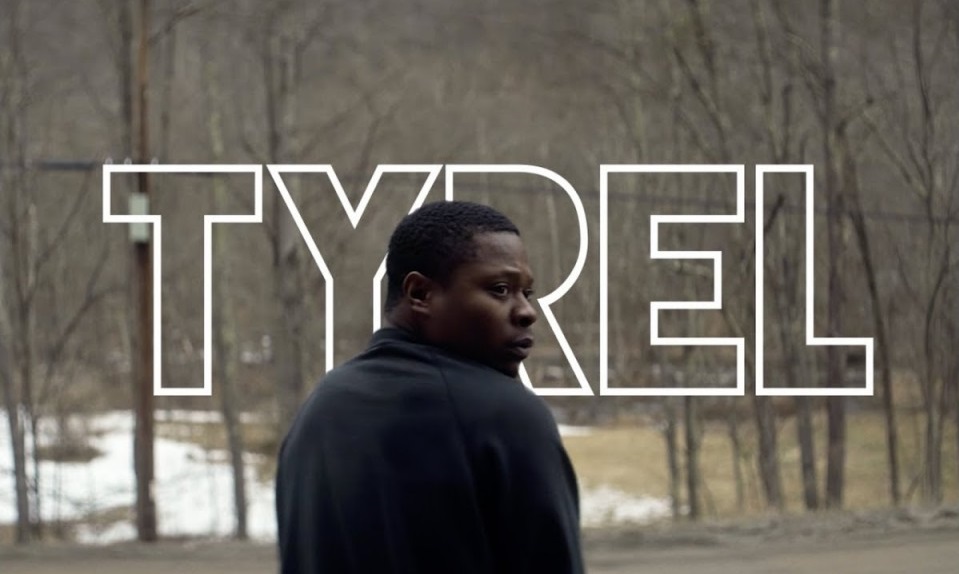Like Sebastián Silva’s previous films, Tyrel walks the tightrope between psychological drama and out-and-out horror. Interpersonal conflicts come to the fore in strange, unpredictable ways. The tension is palpable, the level of cringe punishing.
The film takes place over the course of one wild weekend. Tyler has been invited by his friend Johnny to drink with his childhood buddies. Being thrown into a new group of people can be anxiety-inducing enough, but once Tyler meets Johnny’s fratboy mates, it quickly becomes clear that he’s the only black man among them, adding an extra layer of unspoken tension.
What makes Tyrel so fascinating is the manner in which it deals with the subtler side of prejudice, the faux pas and Freudian slips that betray people’s unconscious thoughts. Set during President Trumps inauguration, the characters frequently voice their disgust for the “orange fascist” but their micro-aggressions toward Tyler tell a different story.
The film is anchored by Jason Mitchell’s brilliant performance as Tyler. Behind every polite smile and indulgent laugh, you see his growing discomfort. In a tense early scene, Tyler is asked to do a stereotypical ‘black accent’ as part of a game. Mitchell plays it beautifully, capturing Tyler’s quiet anger and self-disgust when he finally complies.
He’s ably supported by his co-stars. Between this and Get Out, Caleb Landry Jones could make a career out of playing reptilian racists, while Michael Cera injects just the right note of lightness as Alan, the only person that Tyler befriends over this boozy weekend.
Cinematographer Alexis Zabe covers the scenes in sloppy handheld takes that mirror the constant inebriation of the characters. The camera pans lazily over faces, sometimes catching them out of focus. Editors Jennifer Lame and Sofía Subercaseaux do a remarkable job of piercing these shots together, creating a film that feels as volatile as its characters.
Some may find Tyrel a little too subtle and meandering for its own good. There’s no grand finale where grievances are aired, no touching moment where an understanding is reached. By and large, things are left unresolved. The nearest thing to a climax is Tyler’s drunken attempt to make an escape from the house.
In predominantly white spaces, prejudice can go unnoticed, particularly when there’s drink involved. Tyrel asks white people to step outside of their perspective, to see the pain they inflict on others through their seemingly benign actions. It’s an uncomfortable watch with no easy answers, but in these increasingly divisive times, it serves as a brilliant slice of cinematic empathy. Jack O’Higgins
Tyrel was screened as part of the Dublin Film Festival and will be released at a later date.





